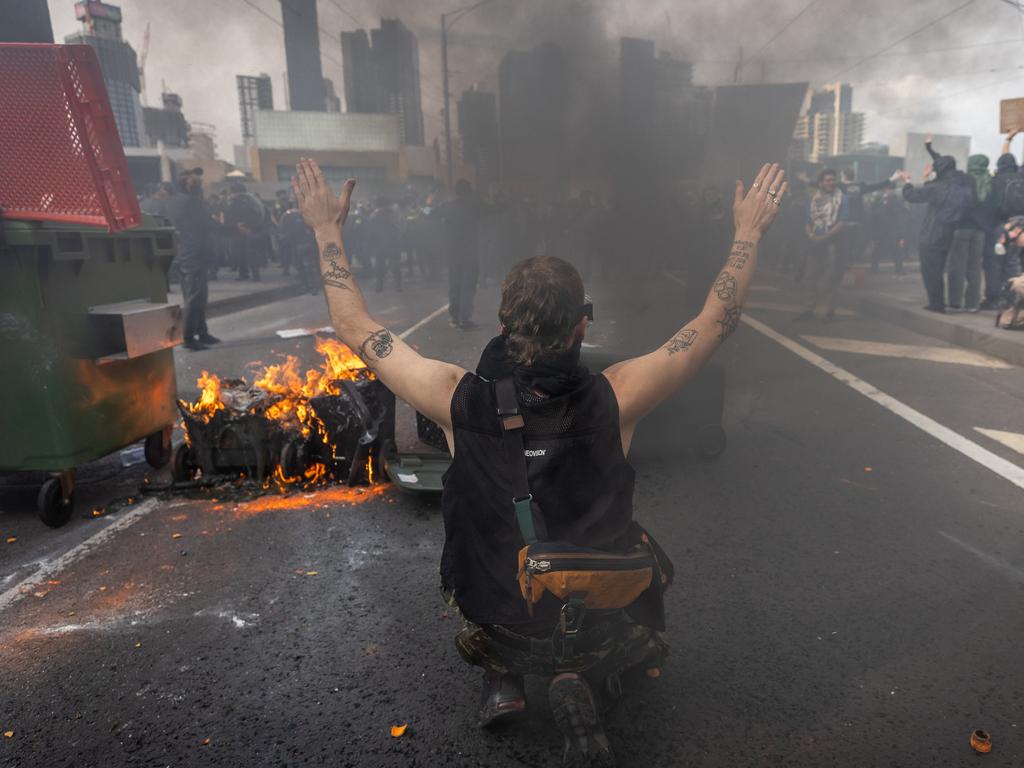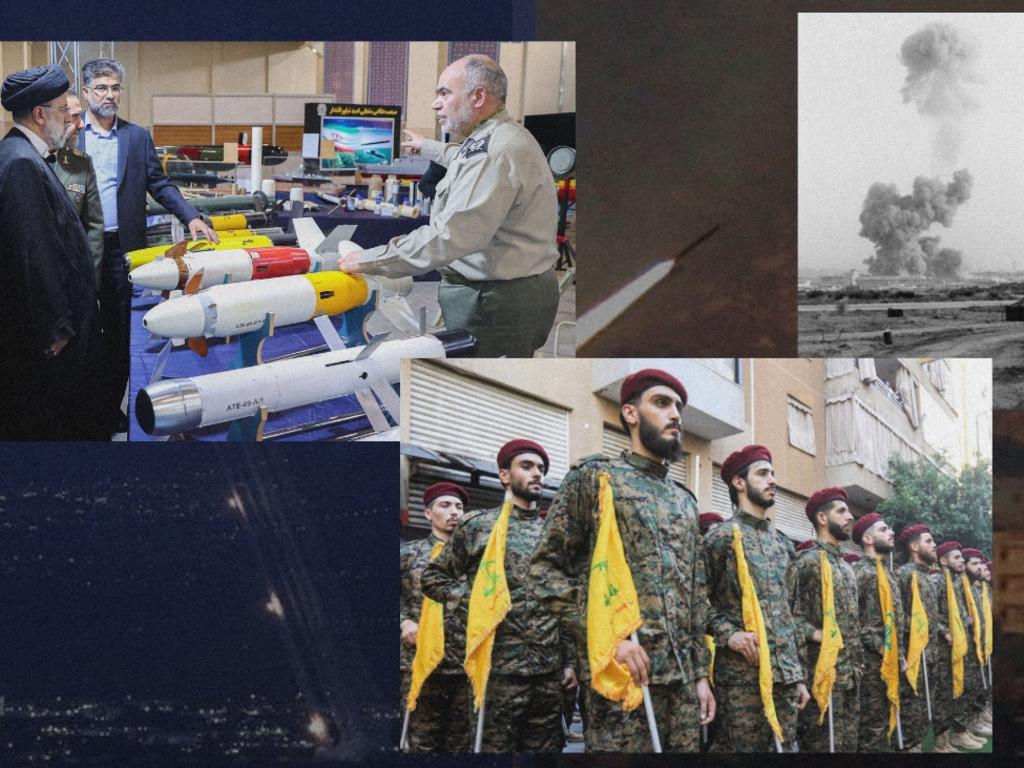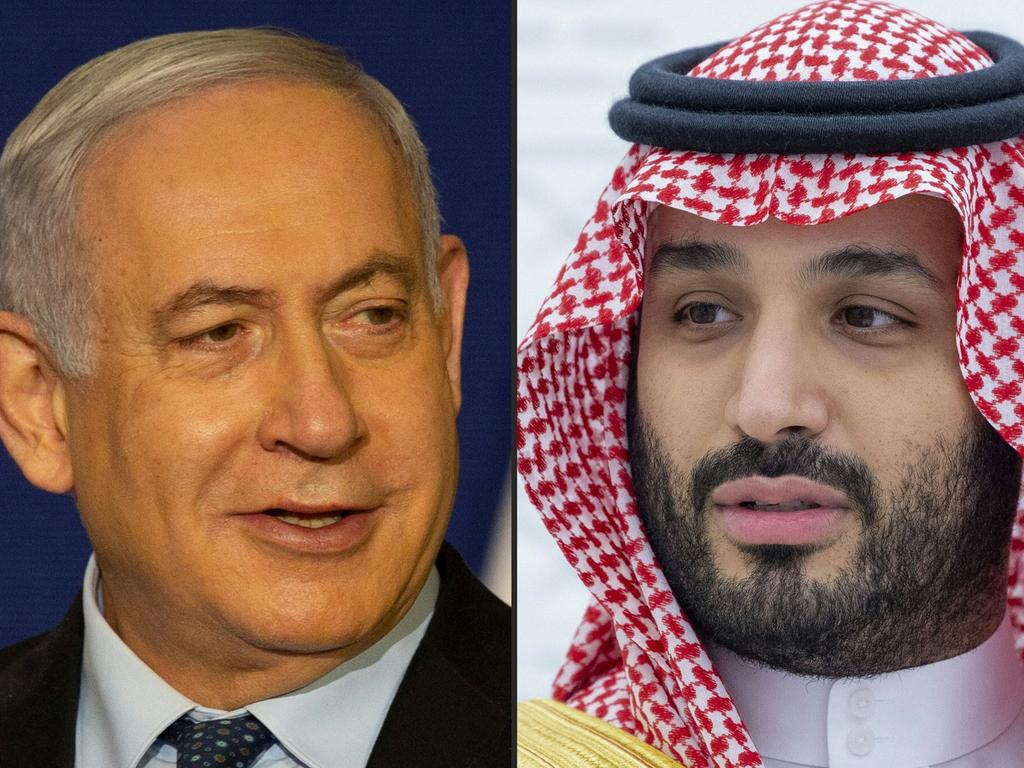Has Israel absorbed all the lessons of the 2006 Hezbollah war?
More recently, the death of military commander Fuad Shukr in an airstrike in Hezbollah’s heartland in southern Beirut and then the injuries to hundreds of operatives from the detonation of thousands of doctored pagers and walkie-talkies showed how deeply Hezbollah’s much-vaunted security architecture has been penetrated. And now, a week after the exposure and exploitation of Hezbollah’s communication network, Israel has launched a withering air campaign that has done untold damage to the group’s weapons launchers and ammunition stockpiles, and killed scores more of its operatives, including senior and mid-level commanders.
The response of its partners in the so-called axis of resistance has been anaemic, with little more than rhetorical support and a drone attack on Israel’s southern port of Eilat. Many fellow Arabs in other regional states welcome the attritional campaign being waged against Hezbollah by Israel, even if their leaders won’t say so openly.
In turning its attention to Hezbollah, Israel has learnt from the many lessons that emerged from its poorly executed month-long war with Hezbollah in 2006. Its internal Winograd Commission was highly critical of senior Israeli military and political leaders who allowed Hezbollah “to sit on the border” and to “dictate the moment of escalation”. In rushing precipitously to a military response, PM Ehud Olmert “made up his mind hastily, despite the fact that no detailed military plan was submitted to him”.
This time Israel has had the relative luxury of time to develop plans incorporating lessons from 2006, war-game them and prepare forces to execute them.
Israel seeks a lasting change to the tit-for-tat indirect fire attacks on its northern border. Hezbollah has claimed it will stop its attacks only after a ceasefire in Gaza. Prime Minister Benjamin Netanyahu has little appetite for a ceasefire and has set ambitious goals, saying he wants to “cut Hezbollah from the war with Hamas” and allow for the safe return of Israelis to their homes in northern Israel.

To achieve these outcomes, Israel has decided to “escalate in order to de-escalate”. In other words, by increasing military pressure on Hezbollah the Netanyahu government hopes to force Hezbollah to negotiate a ceasefire or to withdraw weapons from south of the Litani River in accordance with UN Security Council Resolution 1701, adopted in 2006.
Hezbollah has ignored this resolution, pointing to Israel’s refusal to adhere to a range of other resolutions. The problem with escalating to de-escalate, however, is in judging the other side’s capacity for pain. Hezbollah’s Shia identity, rooted as it is in the narrative surrounding Hussein’s death at Karbala, has the notion of resistance against overwhelming odds at its core. So battlefield losses are readily accepted. But there is also a pragmatic side to Hezbollah, and its human and logistical resources are finite – it is possible at some point Hezbollah may decide it isn’t willing to absorb the spiralling cost and will be willing to accept a diplomatic exit ramp to preserve its resources for the future. That doesn’t appear likely, though.
Hezbollah’s secretary-general Hassan Nasrallah understands the need to balance his role as a key element of Iran’s axis of resistance and the leader of the dominant political grouping in Lebanon, whose population bears the consequences of Hezbollah’s actions. But while domestic considerations are one factor, they don’t necessarily dictate Hezbollah’s actions. Hezbollah knows it is unpopular with most of the non-Shia population and some of the Shia.
But it also knows Israel is disliked by nearly all Lebanese. And while the regional Arab community may be happy to see Hezbollah suffer losses, it doesn’t want the Lebanese to suffer as a result. The longer Hezbollah refuses to negotiate a ceasefire, the more Lebanese civilians will die and the greater the pressure on Israel to stop. There is a perverse logic to its calculations.
Israel has its own challenges. Besides understanding when escalation is working, its leaders also need to know if the approach isn’t working and when and how to stop. Degrading Hezbollah’s military capabilities serves a real purpose in improving Israeli security in the short term, but if the escalation doesn’t result in the return of Israelis to the north then it will be a political failure.
The Israeli military also threatens to undertake a ground incursion. Israel’s intelligence and aerial campaigns against Hezbollah have served to weaken the organisation in a way that it wasn’t before the 2006 war. But south Lebanon’s physical and human terrain remains the same as it was in 2006 and advantages the defender, so Israel will be cautious about launching a major ground offensive even if it isn’t so cautious about threatening it.
Air campaigns play to many of Israel’s strengths and exploit some of Hezbollah’s key weaknesses. Hezbollah lacks the air defence capability to threaten Israeli aircraft, while for Israel an air campaign allows it to increase or reduce the intensity of its response without becoming decisively committed to the conflict. If Israel were to launch a ground incursion, it becomes decisively committed. The risks to its own troops are very real – no matter how degraded Hezbollah may have become, its fighters will be operating on ground they know well. And time will be on Hezbollah’s side – if the real political aim of the Israeli operation against Hezbollah is to allow the return of Israelis to northern Israel then Israel needs to guarantee their security. Hezbollah will know that only a ceasefire agreement will achieve that, and continued low-level rocket fire into Israel prevents the Israeli government from claiming success. It’s the classic counterinsurgency dilemma – as long as the armed group doesn’t lose, it wins.
If the Israeli escalation evolves into a ground campaign, Israel needs to have a clear understanding of why it is there and how it is going to end it. In 1982 and 2006 Israel entered Lebanon with unrealistic and unachievable strategic aims. The same could be said of Gaza. As we stand on the brink of another Israeli ground incursion into Lebanon, we should all heed the words of the Winograd Commission about the Israeli government’s actions in 2006: “They authorised to commence a military campaign without considering how to exit it.”
Rodger Shanahan is a Middle East analyst and author of Clans, Parties and Clerics: The Shi’a of Lebanon.







Hezbollah is facing a crisis of unprecedented proportions. Hundreds of its fighters have been killed in Israeli strikes since the organisation began launching thousands of rockets, missiles and drones into northern Israel as part of a co-ordinated campaign in support of Hamas following the October 7 terrorist attacks against Israel.